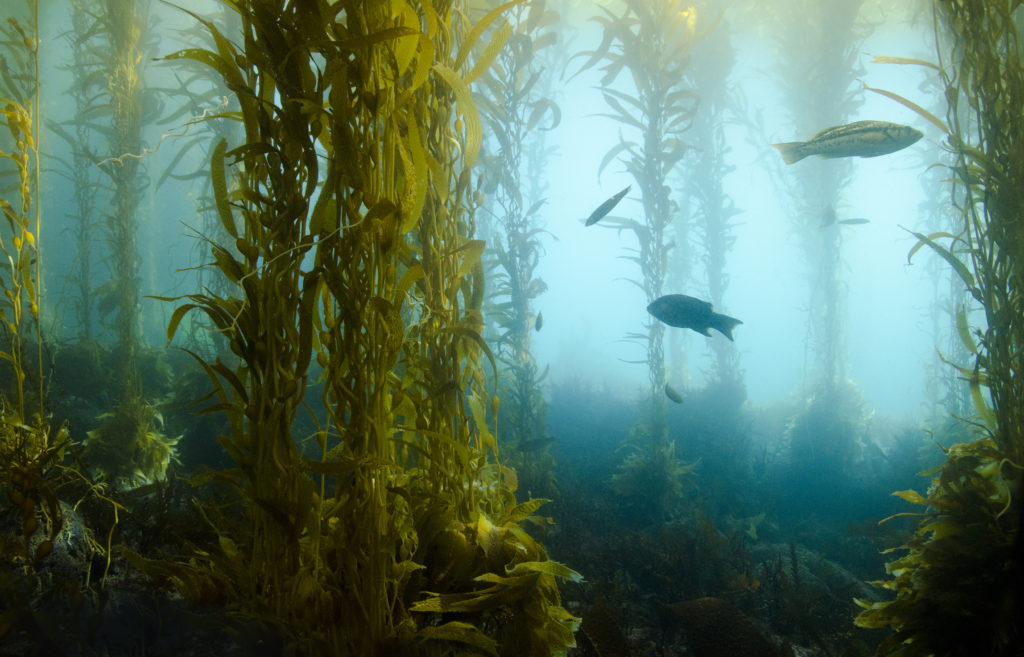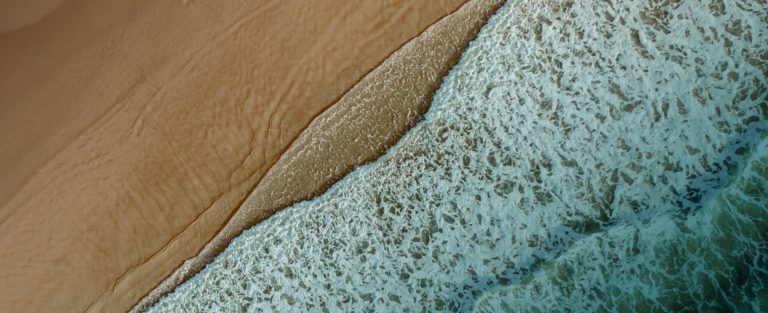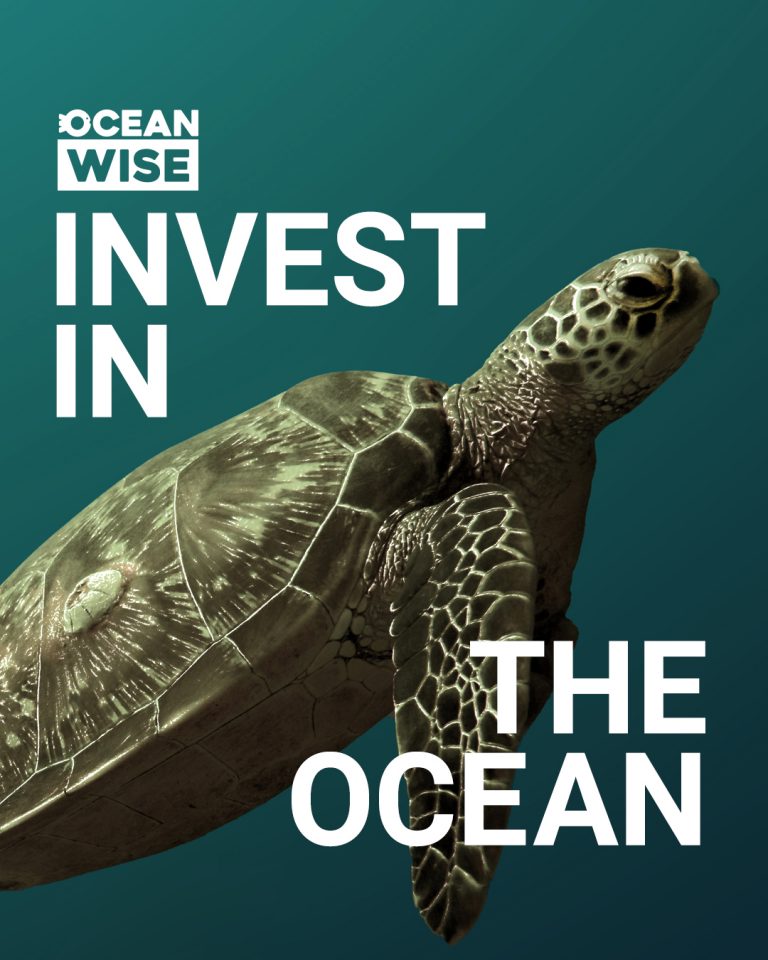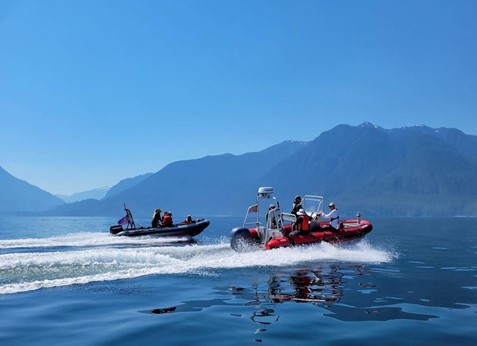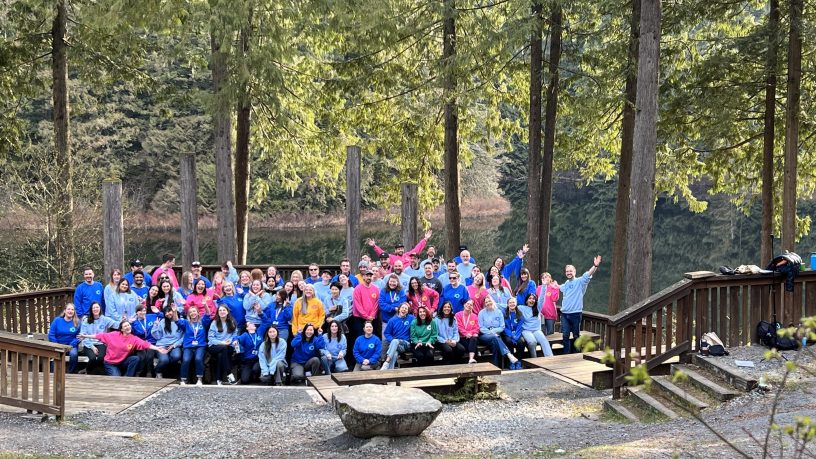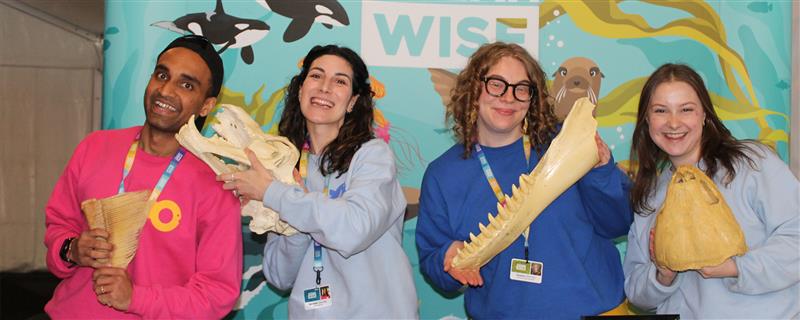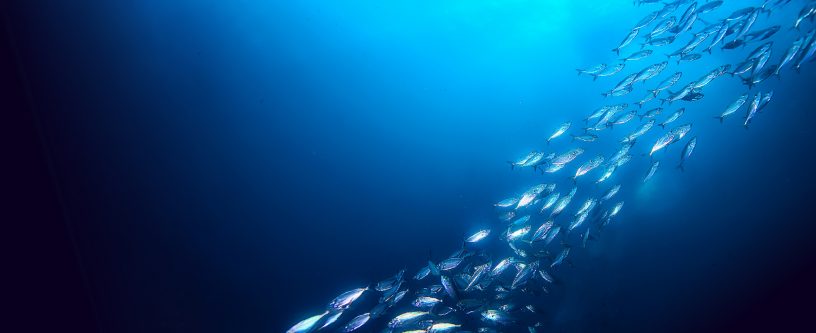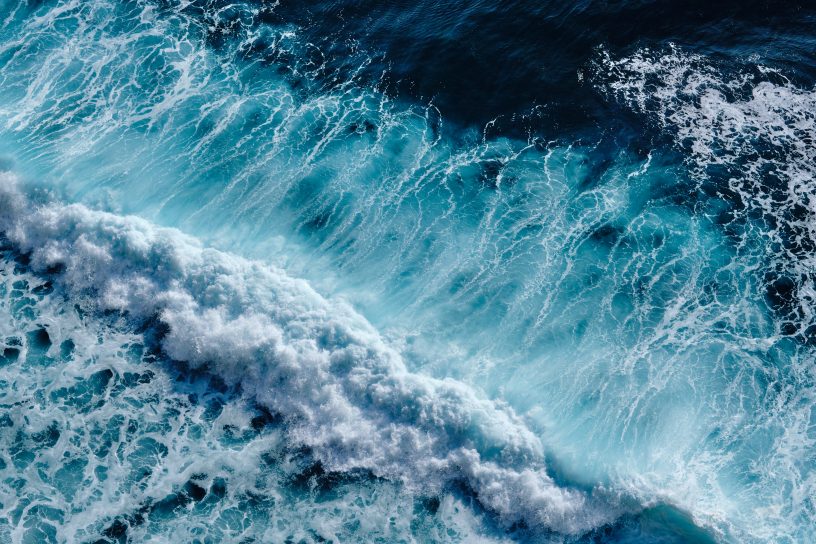Ten Ways We Took Action for the Ocean in 2024
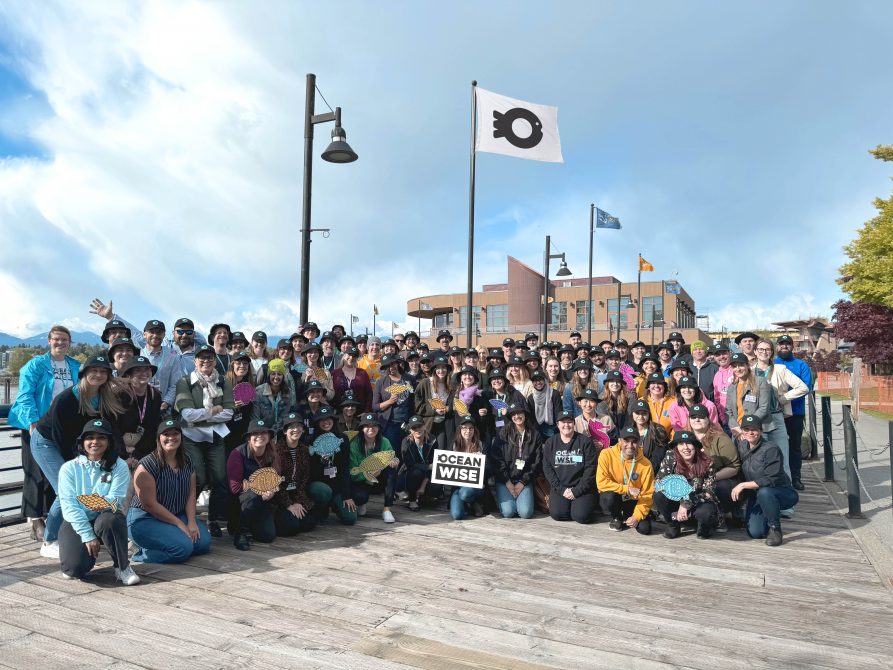
2024 was a big year for Ocean Wise. As the year comes to a close, we are reflecting on what we’ve achieved. Join us in celebrating these wins for the ocean!
1) Supporting Sustainable BC Salmon
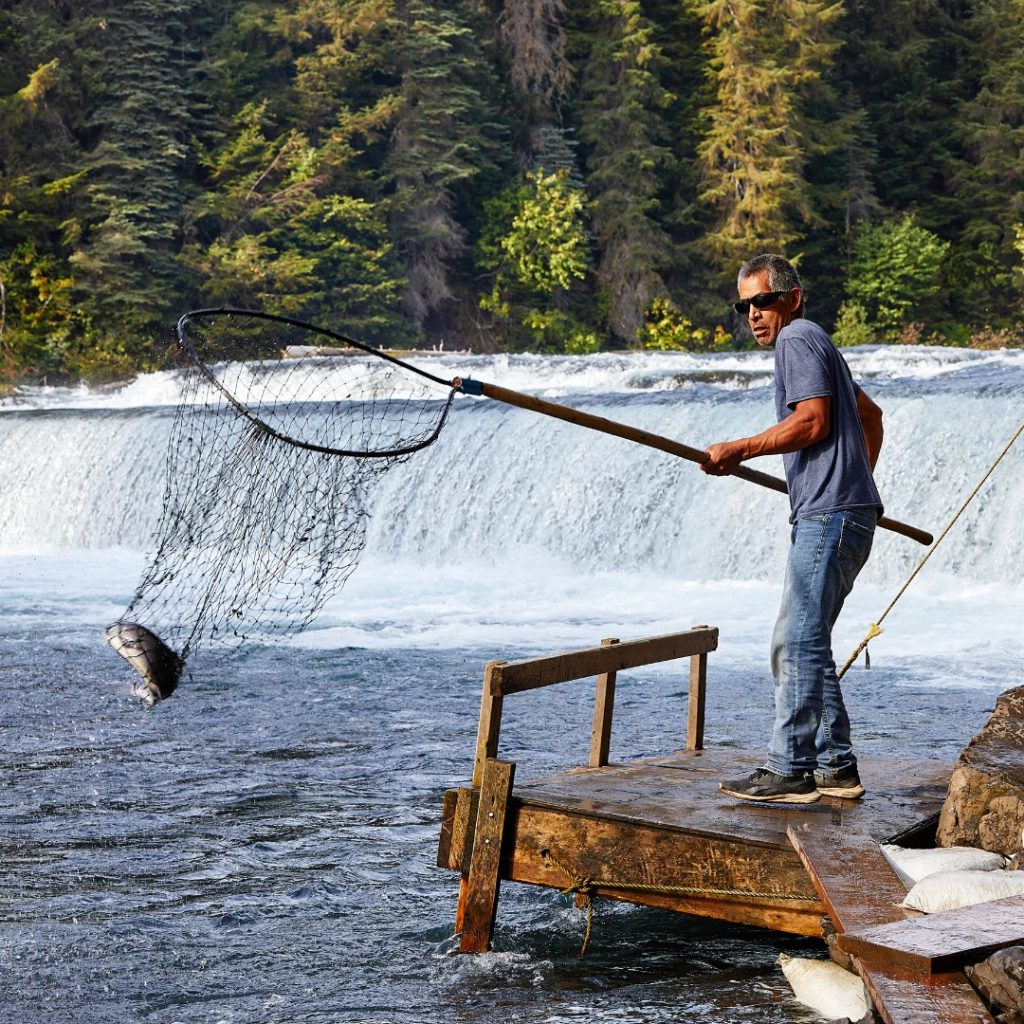
Identifying sustainable salmon options in British Columbia has always been a challenge. The health of B.C. Salmon populations fluctuates yearly. And no two salmon fisheries operate the same.
With so much variation, a new, nimble assessment process was required to accurately assess the sustainability of this iconic seafood. In February of 2024, Ocean Wise launched the Salmon Advisory Panel, comprised of leading experts in B.C. Salmon, to help address this challenge.
By combining their unique guidance and knowledge with the Ocean Wise Rapid Assessment Standard, we were able to identify 15 new Ocean Wise Recommended B.C. Salmon options. Including the Gitanyow Dip Net Fishery. These new recommendations help consumers access sustainable options, while supporting the livelihoods of ocean-friendly salmon fishers.
2) Scaling Seaforestation
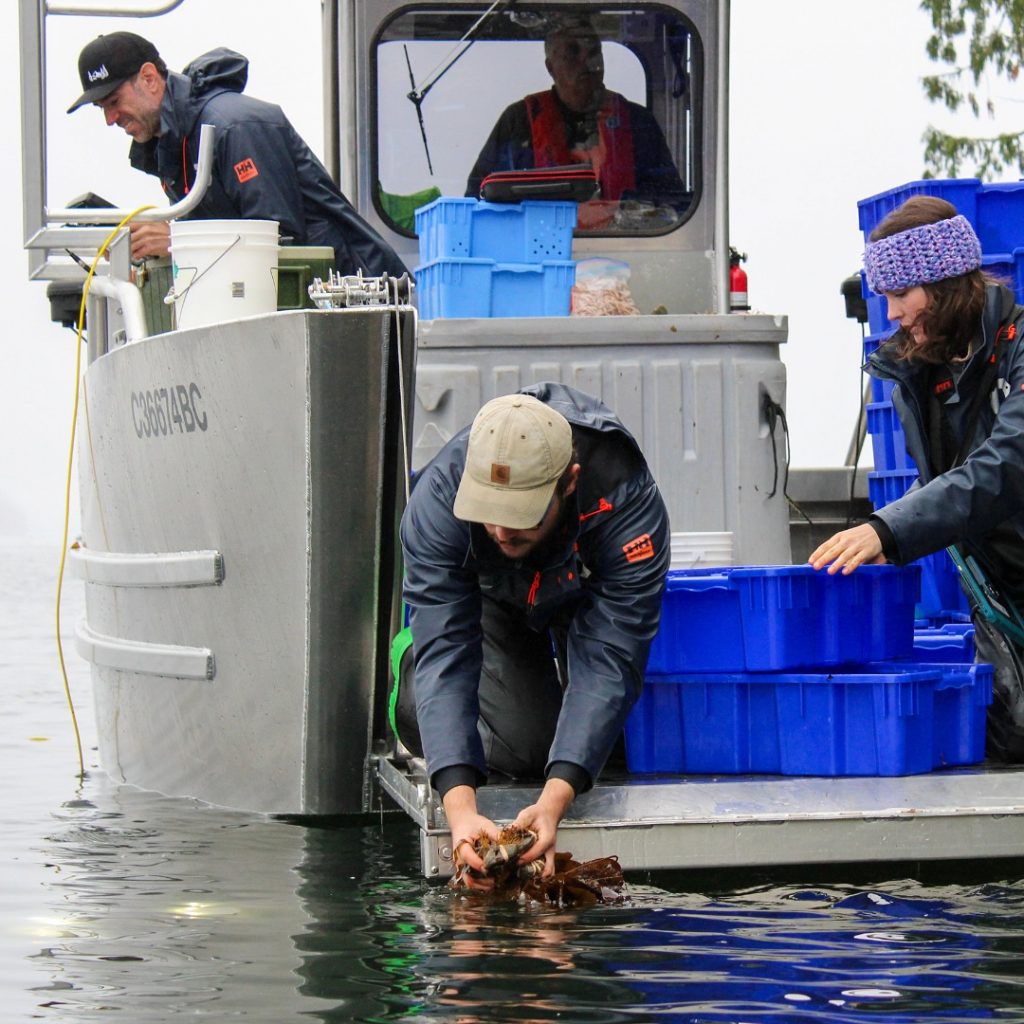
2024 was a milestone year for kelp restoration at Ocean Wise, marked by incredible collaborations and impactful projects. We transplanted our first batch of sugar kelp (grown at the Ocean Wise Kelp Nursery) in Burrard Inlet with help from partners at the Granville Island Sea Village and Biotherm. With the Tseshaht Nation, we also transplanted nearly 2,000 giant kelp sporophytes with the help of three high school students from School District 70 in Barkley Sound, part of the Tseshaht hahuułi.
In October we released Monitoring Kelp Forest Ecosystems: A Guidebook to Quantifying Biodiversity, Ecosystem Health, and Ecosystem Benefits with the Kelp Forest Alliance. As the field of kelp restoration grows, the standardized approach outlined in this comprehensive guidebook will help restoration practitioners around the globe.
To close the year, we co-hosted our first Kelp Summit with the Pacific Seaweed Industry Association. Bringing together 50 professionals for a day of discussions on kelp restoration and the seaweed industry. Our group of panelists guided us towards solutions-oriented dialogue with implementable action steps for restoring and protecting B.C.’s kelp forests and growing the seaweed industry sustainably.
3) Strengthening Shoreline Cleanup Data
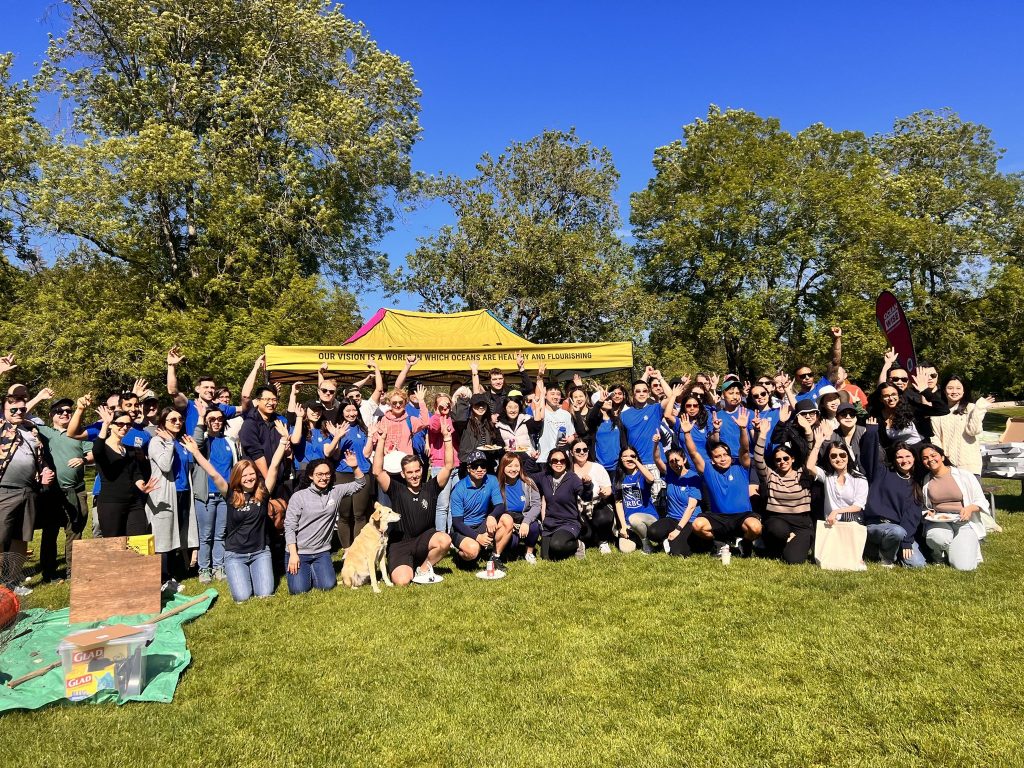
In 2024, a major focus of our efforts on the shorelines was to make our litter dataset more robust to better inform plastic pollution policy on a larger scale. This invaluable data has the power to drive policy, fuel research and inspire community action.
Thanks to our founding US sponsor Tru Earth, the Shoreline Cleanup program also collaborated with partner organizations in America – Girl Up USA and Earth Echo International – empowering youth to lead cleanups in their own communities, including those in Washington, California, Texas, Louisiana, Florida, New York and many states in between! One of the standout moments was inspiring over 100 young leaders at the 2023 Girl Up Leadership Summit to take action for our ocean.
4) Advancing Microfiber and Pollutant Research
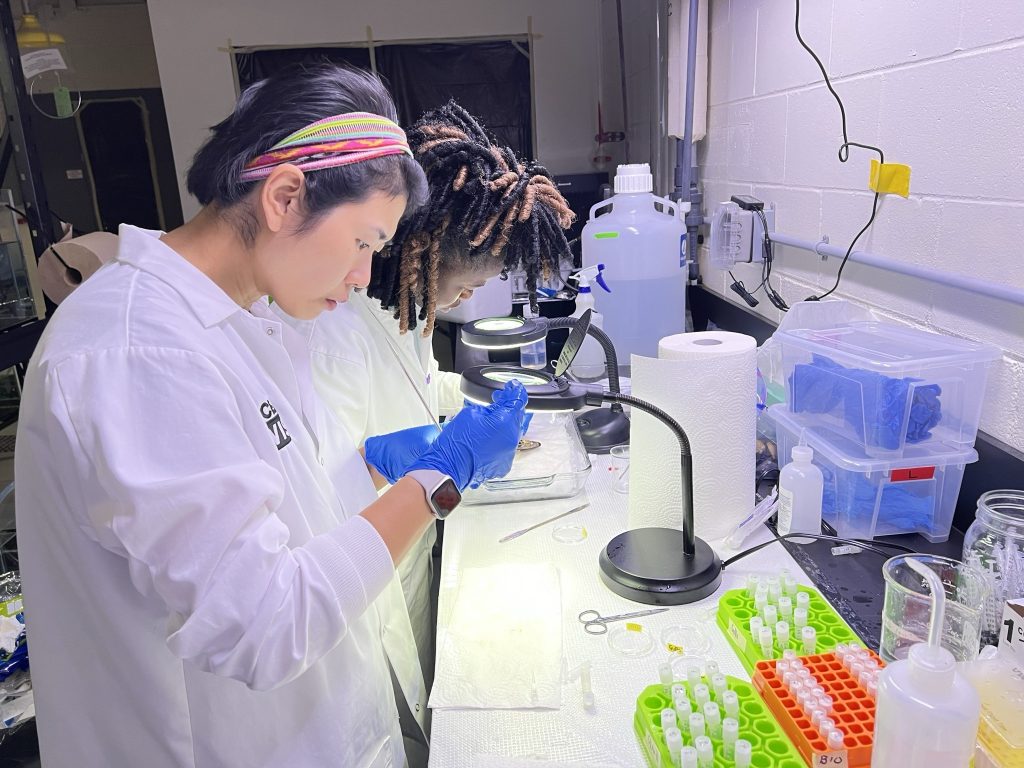
Researchers from the Ocean Wise Plastics Lab, in collaboration with the University of British Columbia, revealed how laundry pollution impacts marine life. The study adds to the growing evidence of the harm that microfibers cause in ocean ecosystems. “We are finding that zooplankton are eating microfibers instead of their food, hence missing out on energy and nutrition,” said Dr. Oladimeji Ayo Iwalaye, a postdoctoral researcher at Ocean Wise and UBC. “This can have ripple effects on the marine food web, as zooplankton are a key food source for many species.”
Since 2019, Pollution Tracker data has shaped water quality policies for Burrard Inlet. In March 2024, this work became formalized, requiring the Ministry to consider these objectives in decisions affecting the inlet—a major milestone for Ocean Wise’s impact on policy. This year, Pollution Tracker also contributed to the Health of the Salish Sea Report, a collaboration between Environment and Climate Change Canada and the US EPA. It included ten actionable recommendations to help reduce pollution in the Salish Sea, addressing critical cross-border environmental challenges.
5) Celebrating World Ocean Day in Vancouver
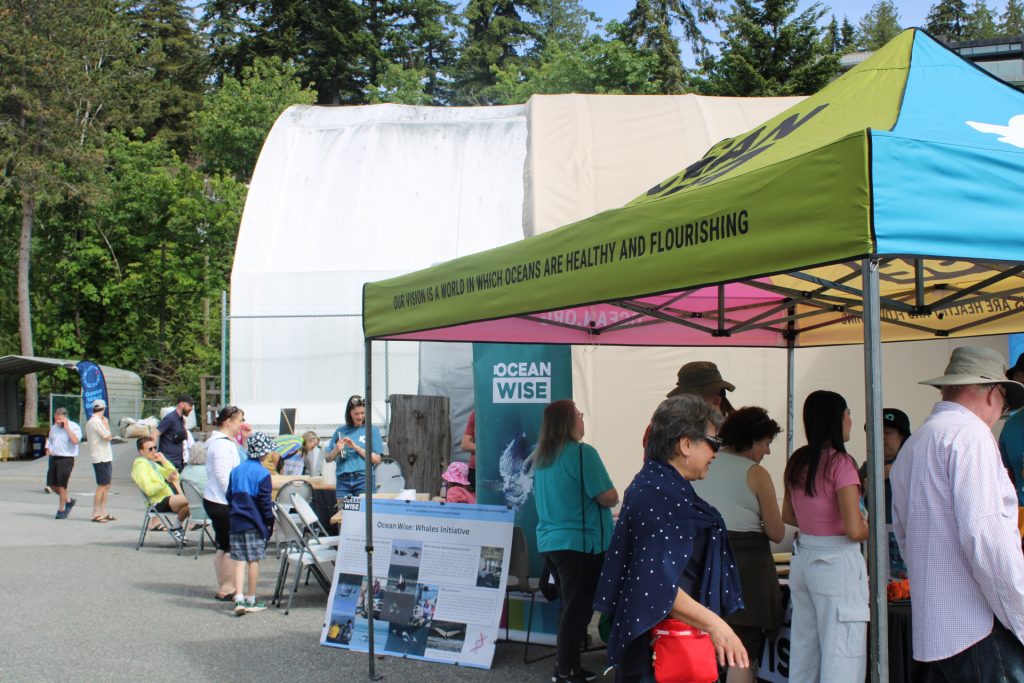
In 2024, we proudly launched our #BeOceanWise campaign, highlighting key moments to learn about, act for and give back to the ocean. One of the standout moments was World Ocean Day, where we helped lead Ocean Week Canada events in Vancouver, Halifax and Quebec. We were thrilled to host and participate in several activities through the month including the highly-anticipated Ocean Wise Pop-Up Dinners, multiple Shoreline Cleanups with partners like RBC and informative Pacific Science Enterprise Centre Open House. These events brought our community together, fostering a deeper connection with the ocean and inspiring collective action to protect our blue planet.
6) Saving Whales from Ship Strikes
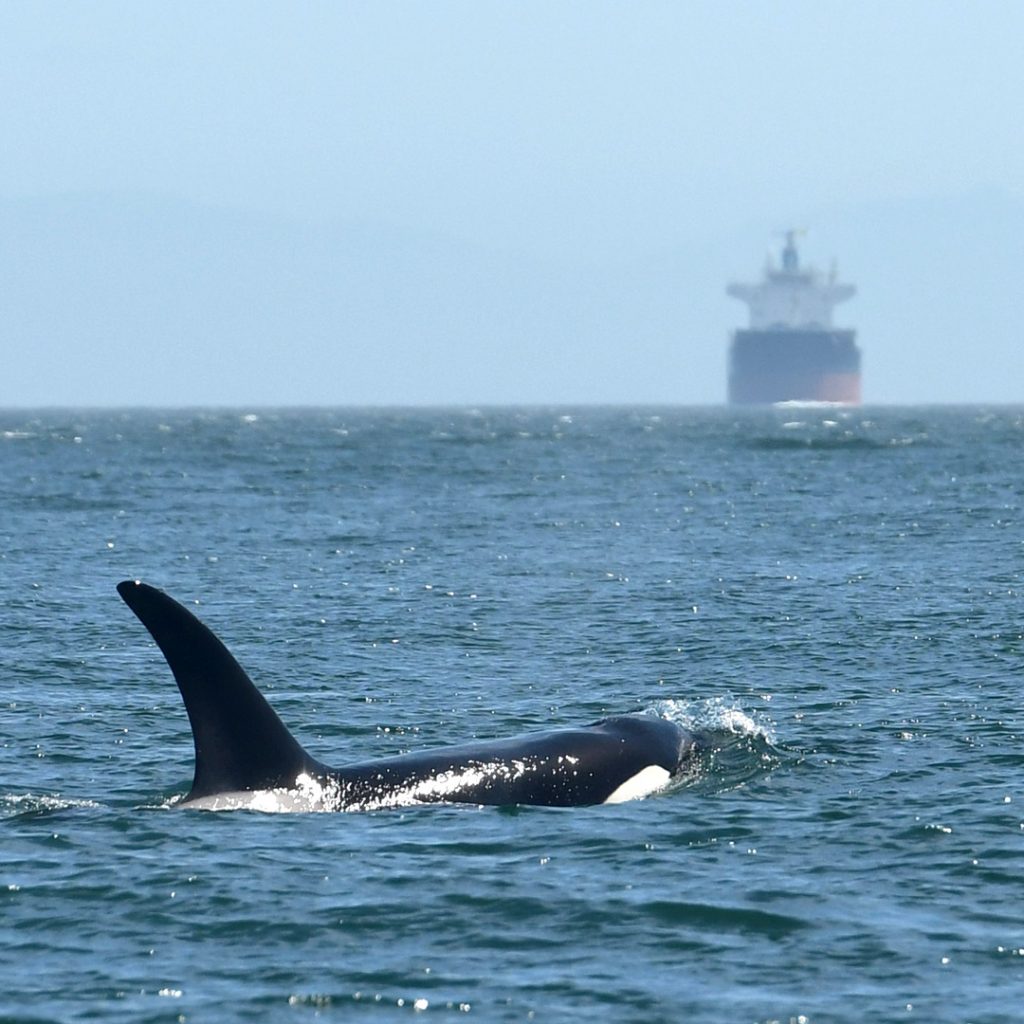
Ship strikes are one of the largest threats to whales worldwide. Since 2018, the Ocean Wise Whale Report Alert System (WRAS) has been helping to reduce strikes. This year, we advanced the WRAS by integrating new technology.
By integrating hydrophones (high-tech underwater microphones) into our sightings network the WRAS is now able to detect whales in areas with limited visibility. Using this information, we are able to alert mariners in the vicinity of whales to slow down, re-route, or stop to prevent collisions.
Hydrophones are deployed at the Boundary Pass Underwater Listening Station, operated by JASCO Applied Sciences, and in Southern Resident killer whale habitat near Lime Kiln Point State Park, thanks to SMRU Consulting and the Vancouver Fraser Port Authority. Combined with sightings made by citizen scientists via the WhaleReport App, we expect this to generate more alerts to mariners, keeping more whales safe.
In 2024, WRAS was featured in Biological Conservation, data from the Ocean Wise Sightings Network was included in a global study on ship strikes, and the WRAS integrated with Whale Alert in Alaska.
7) Refining Environmental DNA Techniques to Learn More About Whales
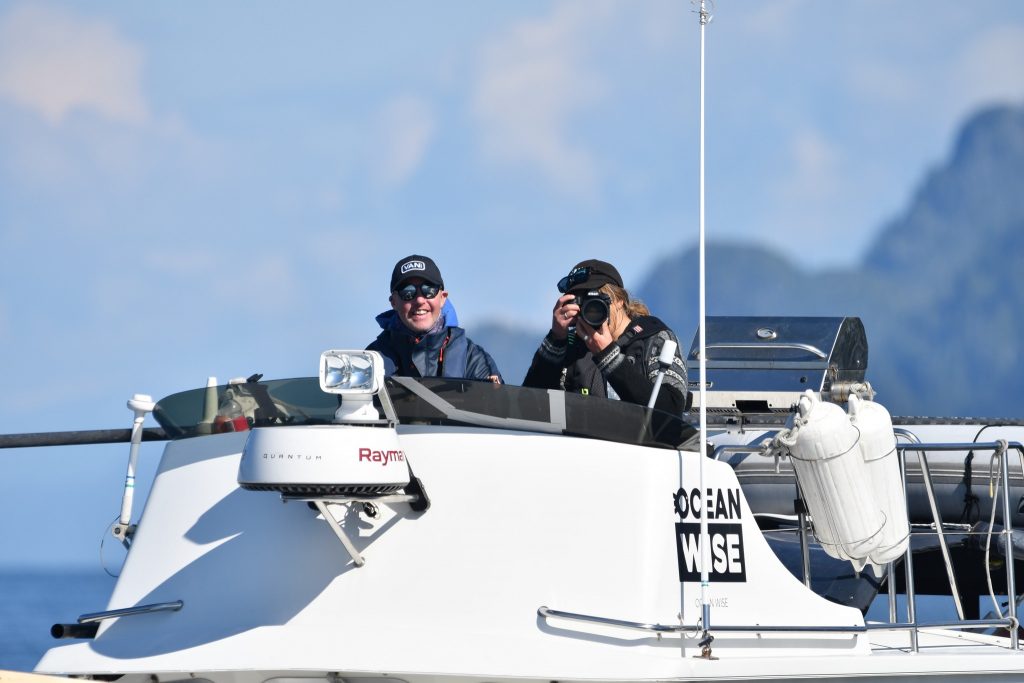
Ocean Wise is advancing the use of environmental DNA (eDNA) to monitor and protect at-risk whale populations. By collecting seawater from “flukeprints,” the calm patches created by diving whales, researchers extract DNA that can be used to tell us information about the whales, from sex to diet. This information can help inform conservation strategies.
In August 2024, Ocean Wise achieved a breakthrough, when researchers were able to use DNA acquired from seawater to determine the sex of wild whales – a first in this field. Our Environmental DNA Laboratory in West Vancouver plays a pivotal role in developing standardized methods to expand the use of eDNA for conservation.
Currently, the Ocean Wise Whales Initiative is conducting winter fieldwork to address critical knowledge gaps in whale behavior and ecology, unlocking new ways to protect these iconic species from threats such as starvation and habitat loss. Throughout this fieldwork, researchers have successfully continued to refine eDNA methods, setting the stage for more breakthroughs in the years ahead.
8) Making Waves of Change With Young People Across Canada and the World
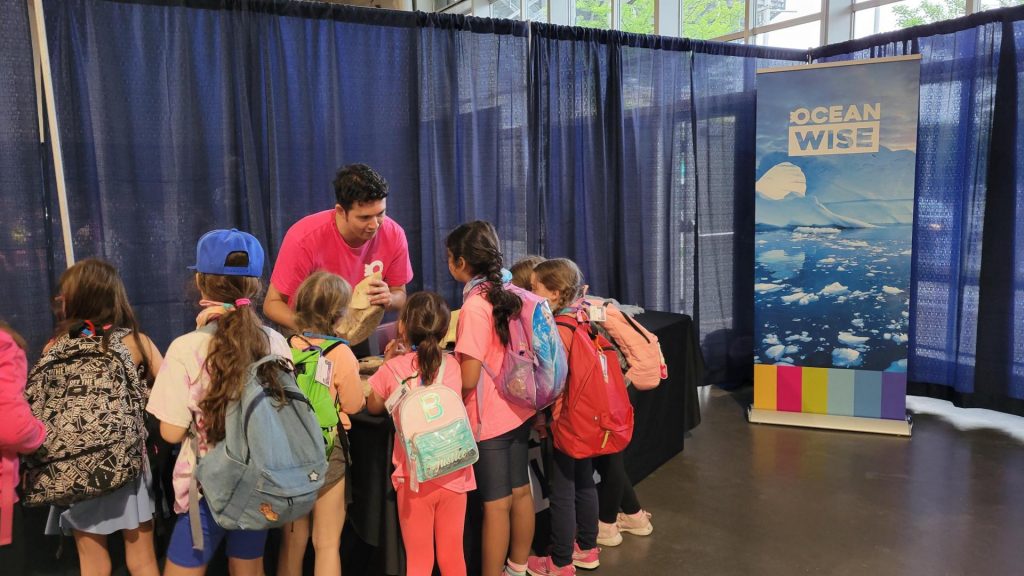
Educating curious minds is key to ocean conservation, and in 2024, Ocean Wise continued to inspire young people worldwide.
This summer, our Mobile Education team brought the Ocean Wise Sea Dome, traveling, immersive ocean pop-up, to Atlantic Canada, for its third annual tour. Visiting 17 communities and hosting 50 events, the Sea Dome engaged over 14,000 people with hands-on ocean learning.
Beyond summer, Ocean Wise reached over 23,000 youth through virtual programming, trained 200 educators in climate and ocean education, and connected with a total of 66,000+ people in a mind boggling 87 countries.
9) Engaging Youth Leaders
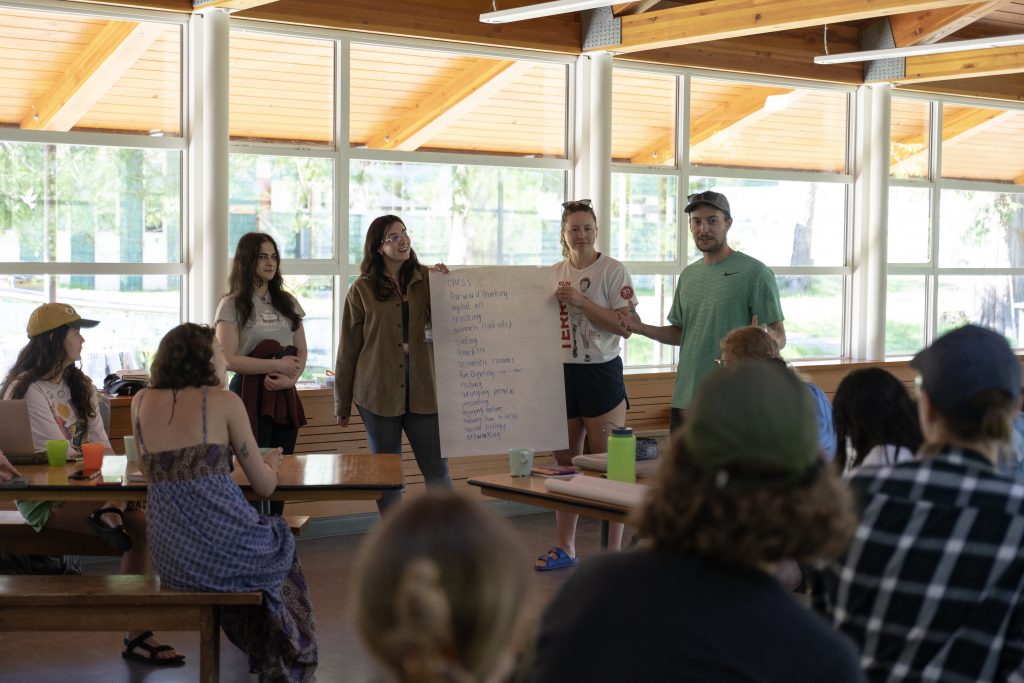
In 2024, we supported 81 youth aged 19 to 30 through our two microgrant programs: Eco-Action Accelerator and Ocean Action Grant. These young changemakers inspired action for our planet and ocean through their impactful conservation projects.
The diversity of their work was incredible, from a children’s book about a whale named Kelp Creature, to AI-driven initiatives for removing and recycling ghost gear from the ocean, to a project that tracked how plastic water bottles travel through rivers and reach the Great Lakes.
One highlight was the Trash 2 Treasure fashion show by the Aquativity Project, featuring hand-crafted South Asian designs made entirely from upcycled materials. This creative event gained recognition on Global News for its innovative approach to sustainable fashion
10) YOU took action for the ocean!
Turning knowledge of the ocean into action for the ocean requires a strong team of passionate individuals working tirelessly for change — and none of that is possible without you. Your dedication and support inspire our staff and volunteers every step of the way.
A heartfelt thank you to all our donors, subscribers, participants, and supporters. Whether you joined us for a Shoreline Cleanup, reported a whale sighting to the WRAS, helped us plant kelp or chose sustainable salmon at your local – THANK YOU.
Together, we’re creating meaningful impact on the water and building a community of ocean champions. Here’s to the incredible difference you make!
Posted December 3, 2024 by Rosemary Newton
Ways you can help
Related articles
